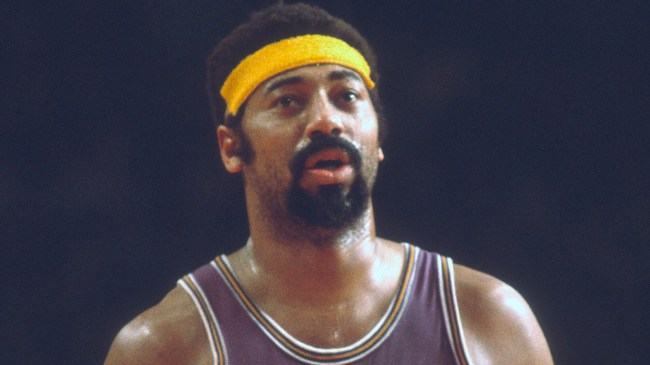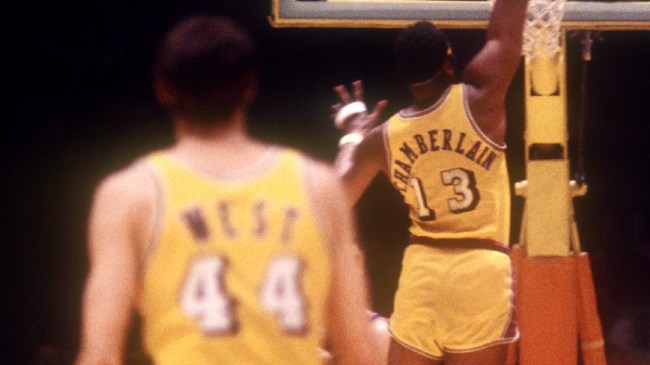
Getty Image
Based on the trend that’s emerged in recent years, the NBA offseason hasn’t really officially kicked off until at least one superstar stirs up some drama by attempting to force a trade to another team after deciding they’re fed up with their current situation.
James Harden is no stranger to that particular strategy, as the man who forced his way out of Houston in 2021 is yet again angling for a change of scenery after opting into an extension with the 76ers, who had promised to trade him after that point but seem to be having second thoughts that have complicated the situation.
The Trail Blazers have also found themselves dealing with a similar scenario courtesy of Damian Lillard, who had spent years pledging his loyalty to Portland before informing the franchise he’d had a change of heart and pressuring the front office to orchestrate a deal with the Heat.
This is simply the continuation of a movement that’s gained steam with the help of other notable names like Kevin Durant, Paul George, Kyrie Irving, and Anthony Davis, who all used the leverage at their disposal to successfully convince their former squads to grant their wish to pursue opportunities they viewed as more conducive to their personal success.
It’s a trend that’s inextricably linked to the rise of the “superteams” that became all the rage after the Celtics and the Heat managed to win at least one title in the late 2000s and early 2010s on the back of the trio of superstars that served as the foundation of their championship runs.
Plenty of NBA fans would tell you things have started to get out of control on that particular front, and while they may have a valid point, it’s also worth noting forcing a trade in the hopes of forming a superteam isn’t necessarily a new development—as evidenced by the NBA legend who did exactly that in the 1960s.
How Wilt Chamberlain created the NBA’s first superteam by demanding a trade

Getty Image
Most basketball fans probably don’t need much background on Wilt Chamberlain; after all, we’re talking about the only person in NBA history who’s managed to score 100 points in a single game (although he has nothing on what Lisa Leslie was able to achieve in high school).
The 7’1″ center rarely had any trouble with the opponents who tried (and almost always failed) to stop him from posting double digits in the scoring and rebounding categories on a nightly basis, and he won Rookie of the Year and Most Valuable Player honors by averaging 37.6 points and 27 rebounds per game after kicking off his career with the Warriors in 1959.
Chamberlain was traded to the 76ers during the All-Star Break in 1965, and he quickly picked up where he left off. After losing two consecutive division finals to the Celtics, he and the 76ers were finally able to get over the hump and secure a championship in 1967, but his relationship with owner Irv Kosloff began to deteriorate from that point on.
The big man had hinted he was interested in taking his talents to Los Angeles as early as 1967, and he told Kosloff and the 76ers his mind was made up before he was given permission to speak with Lakers owner Jack Kent Cooke in 1968.
At the time, Los Angeles boasted two stellar talents in the form of Jerry West and Elgin Baylor, and adding a formidable center to complement their skills seemed like an absolute no-brainer. However, both of them were basically left in the dark about the impending move as the suits negotiated behind the scenes.
Kosloff did what he could to convince Chamberlain to stay in Philly, but he ultimately relented to the request prior to the trade that sent him to the Lakers in a largely ceremonial exchange for Darrall Imhoff, Archie Clark, and Jerry Chambers.
As has been the case with many superteams, it took the new trio a little while to start clicking on all cylinders.
In 1967, the Lakers punched their ticket to the NBA Finals but lost to the Celtics in seven games and came up just short yet again the following year after the Knicks secured the trophy in the same manner.
Los Angeles failed to advance out of the Conference Finals in 1971, but things finally came together in 1972 when their “Big 3” got revenge on the Knicks in a five-game series where Chamberlain was named Finals MVP to finally realize the vision he had when he demanded the trade.